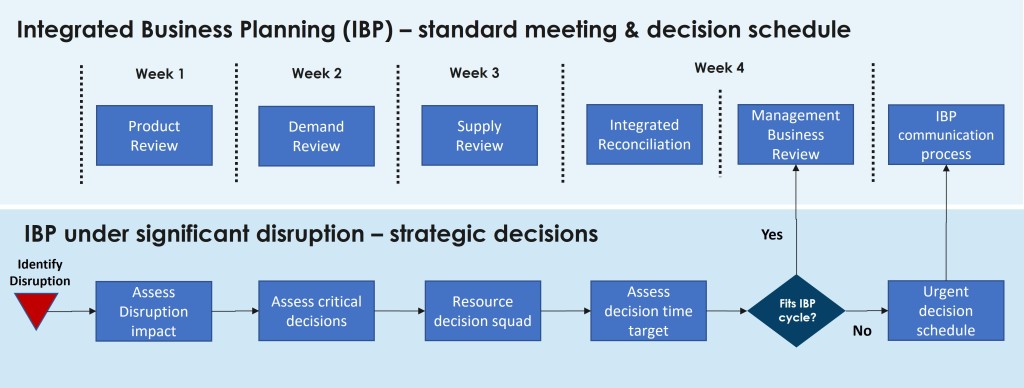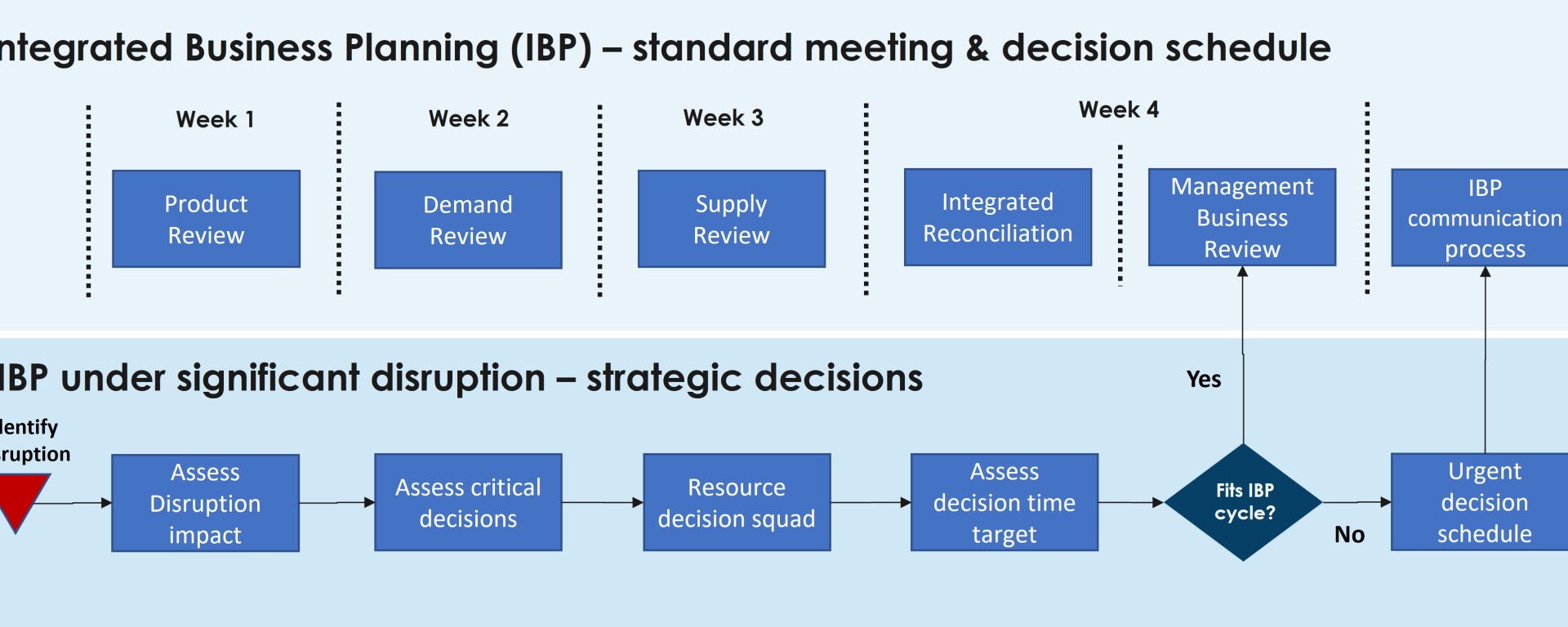PREVIEW Niels van Hove writes that the limitations of the traditional Integrated Business Planning process are severely magnified during periods of significant disruption, which to many of us seems like the new normal. He argues that the standard meeting-and-decision schedule cannot provide timely strategic responses to disruption, as clearly evidenced by organizational steps during COVID. Instead, Niels offers a new tack centered on an IBP decision squad, whose sole focus is on the critical decisions at hand.
Key Points
- Traditional IBP is anchored in a 20-year-old process definition supported by 20-year old planning concepts, leaving gaps in strategic decision making and organizational responsiveness to decisions made.
- Not only does the IBP process struggle to facilitate strategic decisions under normal circumstances, it has proven overly cumbersome and sluggish during times of disruption: wars, trade disputes, extreme-weather events, terrorism, cyberattacks, transport and port strikes, labor shortages – and, of course, pandemics like SARS, foot-and-mouth disease, and COVID-19.
- A focus on responsive strategic decisions during significant disruption will require changes to the traditional IBP process. We recommend the formation of a decision squad with the resources and skills to turn strategic decisions around in a timely manner.
- The role of the planner will have to adapt, but technology should be able to automate many of the information and short-term planning functions, freeing the planner to provide better support for strategic decision making and crisis management.
This article was first published in Foresight (2023 Q1). I can provide the full article on request.
Cheers, Niels



3 thoughts on “A New Approach to IBP Decisions during Crises”